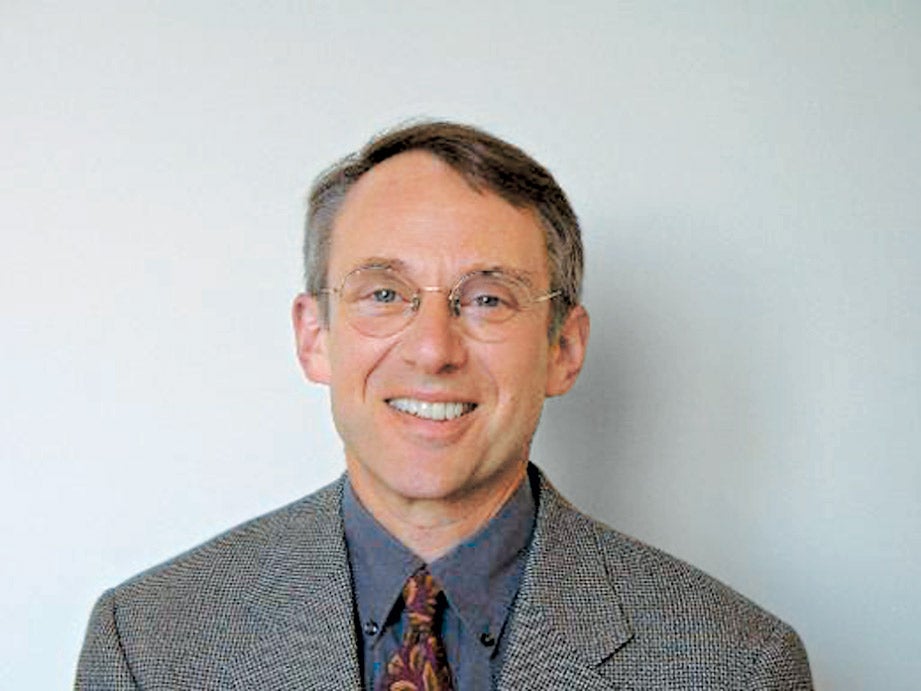In 1985, David Hoffman ’84 took a mundane case that would change his life. A roof collapsed during the final year of warranty, and replacing it would cost $300,000. Hoffman’s client, the owner of the building, was willing to put up $100,000, and the roof manufacturer offered the same amount.
That left a $100,000 gap. The case was litigated for nine frustrating years, with each side spending more than $300,000 in legal fees–totaling six times the amount in dispute.
“That case crystallized my belief that there has to be a better way,” said Hoffman.
Today, Hoffman is offering an alternative: the Boston Law Collaborative, a new kind of law firm that focuses on “more humane, more civilized” ways to solve disputes. The collaborative and a sister firm, The New Law Center in Newton, Mass., where Ellen Lubell ’85 is a member, are trailblazers in a burgeoning movement that recognizes that traditional litigation often destroys relationships and leaves both sides in worse shape than when they began. Both firms handle a wide variety of cases, including divorce and family, employment, business and intellectual property matters. While The New Law Center won’t litigate under any circumstances, the Boston Law Collaborative will head to court if there’s no other choice.
For Hoffman, his new project is an exciting culmination of a lifetime devoted to building relationships and collaborative problem-solving.
“I am very lucky indeed to have reached a place in my career when I can actually make a living doing work that feels so in line with my values,” he said.
As a college and graduate student at Cornell, he lived in communes and was part of an artists’ cooperative, where his craft was woodworking. Today, he lives with his wife and three children in New View, a co-housing community in Acton, Mass., where 24 families reside in separate houses but with an emphasis on community and shared space. “It’s been a wonderful fit for us,” he said. “The idea was to create a different kind of community that had a real feeling of connection.”
After graduating from HLS and clerking for U.S. Supreme Court Justice Stephen Breyer ’64, who at the time was on the U.S. Court of Appeals for the First Circuit, Hoffman joined Boston’s Hill & Barlow because of its commitment to public interest and its family-friendly atmosphere. (He took paternity leave when his youngest child was born and later took a six-month leave to hike the Appalachian trail with his son.)
Then came that roof-collapse case.
“Aside from the practical, client-oriented reasons for feeling disgruntled with the litigation process, it also wasn’t consistent with my approach to life and to problems in general,” he said. “I was caught up in litigation hypnosis, meaning I was no longer able to see both sides of the case, and neither was my client. As a result, we and the folks on the other side of the table were destined for a collision course.”
At the time, alternative dispute resolution was in its infancy. Hoffman turned to HLS Professor Frank Sander ’52, a dean in the movement, who advised him on setting up an ADR section at Hill & Barlow. Over the next decade, Hoffman served as a mediator on a wide variety of matters and co-wrote a treatise, “Massachusetts Alternative Dispute Resolution.” And he continued to search for substitutes for the traditional win-lose litigation process.
“I see part of my skill set is to be a very good listener, to hear what’s in the hearts of my clients, and not to see them just as a bundle of legal rights and obligations,” he said.
In 2000, he helped found the Massachusetts Collaborative Law Council, which already has 100 attorney members. In the collaborative law model, which is growing rapidly across the country, particularly in divorce cases, the parties and their lawyers agree to use negotiation instead of litigation; if a case isn’t resolved and goes to court, the attorneys quit and the parties hire new lawyers.
Hoffman has a new book, “Bringing Peace Into the Room: How the Personal Qualities of the Mediator Impact the Process of Conflict Resolution” (co-edited with Daniel Bowling ’68). And as word spread about his new firm, launched last year, Hoffman generated substantially more in revenues than he’d brought in during his final year at Hill & Barlow.
“People are really responding to the concept of collaborative resolution of conflict,” he said.
